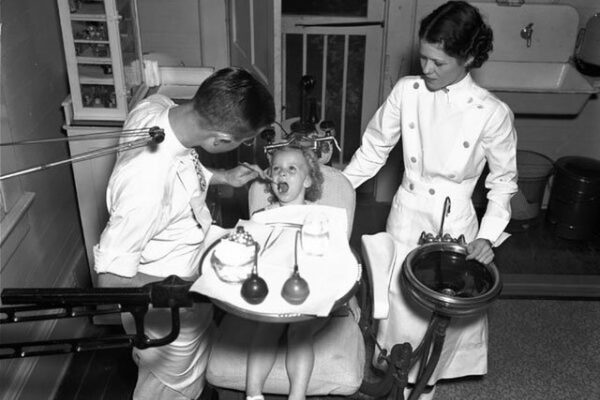
Losing a tooth as an adult is never a good experience. Whether it is natural, getting it pulled, or from an injury, it can evoke worry and stress. It’s not uncommon to feel a mix of surprise, worry, or even a sense of loss because we know that tooth is gone forever. It will never grow back.
Until now, that is. Researchers have developed a new way to grow teeth, at least in mice. Dental implants or bridges might soon become a thing of the past.
It looks like the Tooth Fairy might be getting a little busier soon.
Back in 2021, a team from the Graduate School of Medicine at Kyoto University published promising research that showed a protein called USAG-1 limits the growth of teeth in mice. By turning off the gene that codes for the production of the protein, the mice were able to freely regrow their teeth.
They were then able to create a neutralizing antibody drug therapy that was able to block the protein’s function, stimulating the mice into growing new sets of teeth. Later experiments showed the same benefits in ferrets, which have a more similar dental pattern to humans.
Animal studies are all well and good for early research, but the team is now keen to see whether the treatment works well in humans. As reported by Japanese newspaper Mainichi, clinical trials are set to begin in July 2024, writes IFL Science.
“The idea of growing new teeth is every dentist’s dream. I’ve been working on this since I was a graduate student. I was confident I’d be able to make it happen,” Katsu Takahashi, head of the Dentistry & Oral Surgery department at the Medical Research Institute Kitano Hospital in Osaka, told the newspaper.
“We hope to pave the way for the medicine’s clinical use,” he added.
Around the world, millions of people do not have a full set of teeth, a condition called anodontia.
ZME Science reports that “genetic factors are thought to be one of the driving factors in this, particularly in people lacking 6 or more teeth. As you can imagine, this lack of teeth can cause substantial discomfort for chewing and speaking, and as this condition is present from birth, its effects propagate for people’s entire lives.
Of course, just because the drug works on mice doesn’t necessarily mean it will work on humans. But Takahashi is optimistic. “We hope to pave the way for the medicine’s clinical use,” the researcher says.
Initially, the drug will be targeted at people suffering from anodontia, but if it’s successful, the drug can be used in all sorts of dental treatments. Are cavities damaging a tooth beyond repair? Let’s just grow a new one. Lost a tooth or several in an accident? Get third-gen teeth to grow. There’s no shortage of applications for such a drug.
Before clinical trials can start, however, the team has to show that the drug is safe in humans and can be tested without any negative side effects. If this turns out to be the case, the team will also deploy human trials, which could end up benefiting millions of patients.”
If this new tooth regrowth medicine proves successful, it could serve as an excellent and more natural substitute for dentures and tooth implants. These conventional options can often be both painful and costly.
There’s still a long way to go, however. Takahashi believes that several trials will be needed to make sure that the treatment is both safe and successful. He told one reporter that the studies will take year. If everything goes to plan, you’ll still have to wait until 2029 to regrow a lost tooth, so you better keep that mouthguard in.
[Read More: Her Dog Ran Barking Into The Woods, When It Ran Back Out She Prepared For A Fight]










Can we mass produce treatment worldwide for Dentists